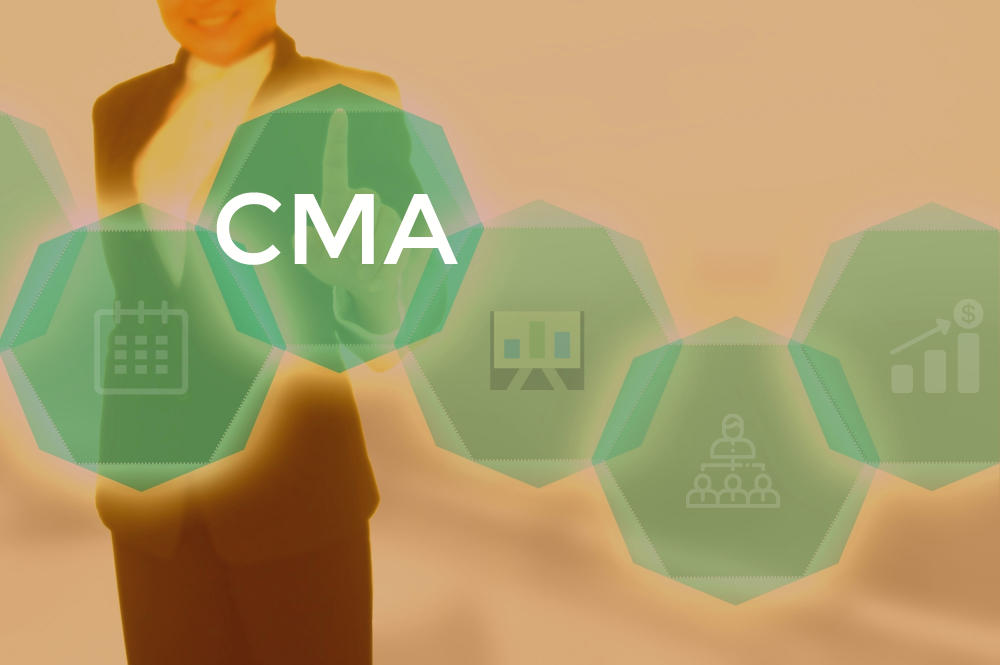
If you're ready to build your expertise and move forward in your career, accounting certifications and licenses are an excellent way to stand out in the profession. While the CPA license offers the most versatility and is more sought after, it may not be the best option depending on your educational background and career goals. Instead, earning your CMA certification may be the right step. If you're just starting to explore your options, we're breaking down the question, "What does CMA stand for in accounting?" and how to determine if it's right for you.
What does CMA stand for in accounting?
In accounting, CMA may have two meanings, Certified Management Accountant and Cost and Management Accountant.
Certified Management Accountant
A Certified Management Accountant is a globally recognized professional designation awarded by the Institute of Management Accountants (IMA) to those who demonstrate expertise in management accounting and strategic financial decision making within organizations. To earn a CMA certification, you need to show competency in financial planning and analysis, forecasting, performance management, and strategic planning.
How to become a Certified Management Accountant
Those interested in receiving this certification must meet the IMA's CMA requirements, which include:
- Holding a bachelor's degree from an accredited university
- Having two years of full-time work experience in a management accounting role
- Holding an active membership in the IMA
- Passing a two-part CMA Exam that covers 12 core competencies, including planning and analysis, risk management, and data analytics
Cost and Management Accountant
In India, CMA has two meanings: Certified Management Accountant as well as Cost and Management Accountant. The Cost and Management certification is governed by the Institute of Cost Accountants of India (ICMAI) and emphasizes cost management, auditing and compliance, and strategic and financial planning.
How to become a Cost and Management Accountant
To obtain this designation, candidates must clear three levels of exams—Foundation, Intermediate, and Final—along with completing 15 months of practical training.
What do CMAs Do?
Because Certified Management Accountant is a global certification, Because CMAs focus less on the data and more on how to use the data to influence strategy and planning, they work in a wide range of industries beyond corporate finance or accounting firms. Certified management accountants work in government agencies, educational institutions, and large corporations, and their job titles can be just as diverse. Often, CMAs have roles including:
- Financial analyst
- Accounting managers
- Senior accountant
- Financial risk manager
- Corporate controllers
- Chief financial officer
Who should consider the CMA certification?
While a CPA license is ideal for individuals seeking a career in public accounting, whether as a tax professional or other specialization, a CMA certification is ideal for those who want to dive into management, strategy, or an executive career path. Those who should consider becoming a CMA include:
- Entry-level accounting professionals: Though you'll need two years of work experience before you’re eligible to become a CMA, that experience can begin with an internship or entry-level role in finance or accounting.
- Working professionals: Individuals working in finance or accounting roles, both who would like to stand out in their field can pursue the CMA credential to advance in their career. While those in this group may already have experience managing portfolios or financials for a company or account, the CMA is an effective way to transition from being an individual contributor to a big-picture strategist.
- Professionals interested in corporate acounting and finance: Large corporations employ the largest share of CMAs, as their specialized knowledge and expert advice are extremely valuable to organizations with complex business operations. The CMA credential unlocks several opportunities within the corporate landscape, from financial advisor to cost accountant to controller or CFO.
International professionals of finance or accounting
The CMA is globally recognized, so as long as an individual meets the requirements outlined below, they can receive their certification. This can be highly beneficial for those working for large corporations with offices around the world, allowing their international teams to gain the needed knowledge to continue to advance both the company and their careers.
What does a CMA stand for in your career?
What does a CMA stand for doesn't just mean understanding the initials. It's understanding what this certification can do for your career. Becoming a Certified Management Accountant reflects your strategic influence on your organization through your financial expertise, informed decision-making, and understanding of risk. In turn, this designation brings a variety of benefits:
- Salary Boost: The CMA salary is often higher than non-credentialed peers.
- Industry Mobility: Opportunities open up across various sectors, including operations, supply chain, and business intelligence.
- Professional Satisfaction: Approximately 80% of CMAs express high job satisfaction, often influencing organizational strategies.
Get our free guide to CMA certification
Get deeper insights into what becoming a Certified Management Accountant can mean for your career and how you can earn this designation. Download our free ebook that walks you through the process and tells you what you need to know!








